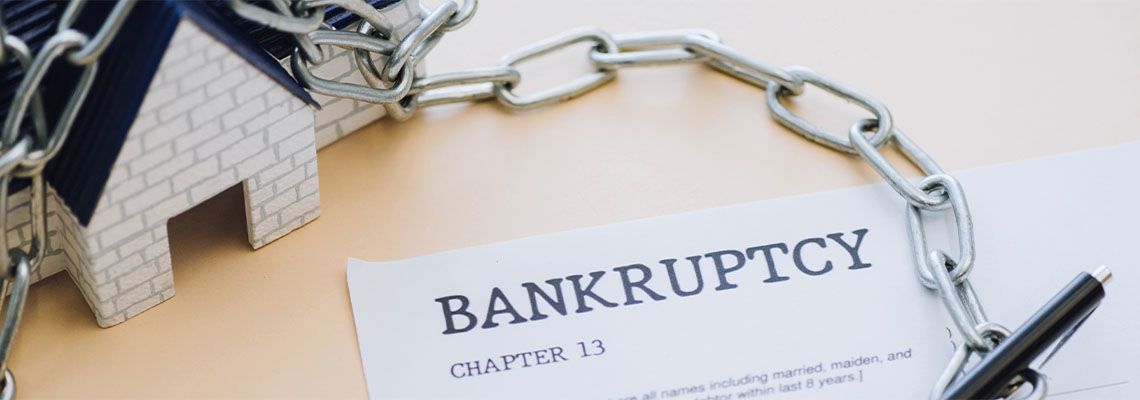
Can I Continue to Pay into a Retirement Account Under Chapter 13?
For individuals who earn a regular income but are facing financial difficulties, filing for Chapter 13 bankruptcy is among the promising solutions to achieve debt relief. In more cases, you will be able to keep most of your assets – including your pension, retirement savings, and benefits – when you file for Chapter 13. Also, depending on the essential rules guiding your retirement plan, you may be able to continue making payments in the account.
At Pytte Law, I provide knowledgeable and comprehensive guidance to clients in bankruptcy-related matters, including retirement accounts. As a practiced Georgia bankruptcy attorney, I can review your specific financial situation, determine your eligibility for Chapter 13 bankruptcy, and decide if you have enough disposable income to continue paying into your retirement accounts. My firm proudly serves clients across Savannah, Hinesville, Richmond Hill, Liberty County, and Evans County, Georgia.
Are Retirement Accounts Protected in Chapter 13 Bankruptcy?
Generally, filing for bankruptcy in Georgia protects every amount in your ERISA-qualified pension plans and retirement accounts. As a result, creditors will be unable to seize your retirement savings and benefits. The following retirement accounts are protected in a Chapter 13 bankruptcy case:
401(k) plans
Some 403(b) plans
Money purchase plans
Pension plans
Individual retirement accounts (IRAs) up to $1.3 million
Keoghs
Deferred compensation plans
Profit-sharing plans
Other ERISA-qualified retirement accounts
With your ERISA-qualified retirement funds fully protected, you can confidently file for bankruptcy in Georgia without any fear of losing your nest egg.
Can I Continue Making Contributions?
Chapter 13 bankruptcy often requires proposing a repayment plan to pay back your debts using your future earnings. However, the amount you will repay usually depends on your income, assets, expenses, and type of debt.
Under the "best effort" rule, you're required to pay all your disposable income into the repayment plan. Once you have paid all reasonably important expenses, you must deposit any income left (disposable income) into the Chapter 13 repayment plan to settle your unsecured creditors.
Conversely, if you continue making contributions to your retirement accounts, you will have less disposable income to contribute to your repayment plan. This means that making contributions to your retirement accounts will be at the expense of your debts and creditors.
What's more, the bankruptcy court will not consider voluntary contributions into your retirement savings as reasonably necessary expenses for your maintenance and support. As a result, you won't be allowed to keep making voluntary retirement contributions. Nevertheless, you should consult with an experienced Chapter 13 bankruptcy attorney to enlighten you about your options.
Possible Exceptions
However, you may be allowed to continue making payments into your retirement accounts if you qualify for any of these exceptions:
Making retirement contributions is a condition of your employment.
You are repaying a retirement account loan.
The retirement contributions are made in good faith.
You're approaching the age of retirement and the contributions are reasonable and important.
Discover Your Options Today
Filing for bankruptcy in Georgia often involves a lot of complex procedures. According to the American Bankruptcy Institute, there were 21,196 total bankruptcy filings in Georgia in 2021, including 10,985 Chapter 13 cases. While Chapter 13 bankruptcy offers adequate protection to the entire amounts in your ERISA-qualified retirement accounts, you may be unable to continue making contributions unless under certain exceptions. A wise bankruptcy attorney can explore your possible legal options and help you navigate intelligent decisions.
At Pytte Law, I have given outstanding legal services to clients through the complexities involved in filing for Chapter 13 bankruptcy. As your legal team, I can analyze your personal situation and help you understand the rules guiding your retirement plans and particular jurisdiction. Also, I will walk you through the bankruptcy process, represent you diligently in court, and outline an effective strategy to protect all of your retirement savings and assets.
Contact my firm – John E. Pytte | Your Georgia Debt Relief Specialist – today to arrange a simple case assessment with an experienced Chapter 13 bankruptcy attorney. I have the clear legal guidance and trusted advocacy you need to make informed decisions. My firm is proud to serve clients across Savannah, Hinesville, Richmond Hill, Liberty County, and Evans County, Georgia.